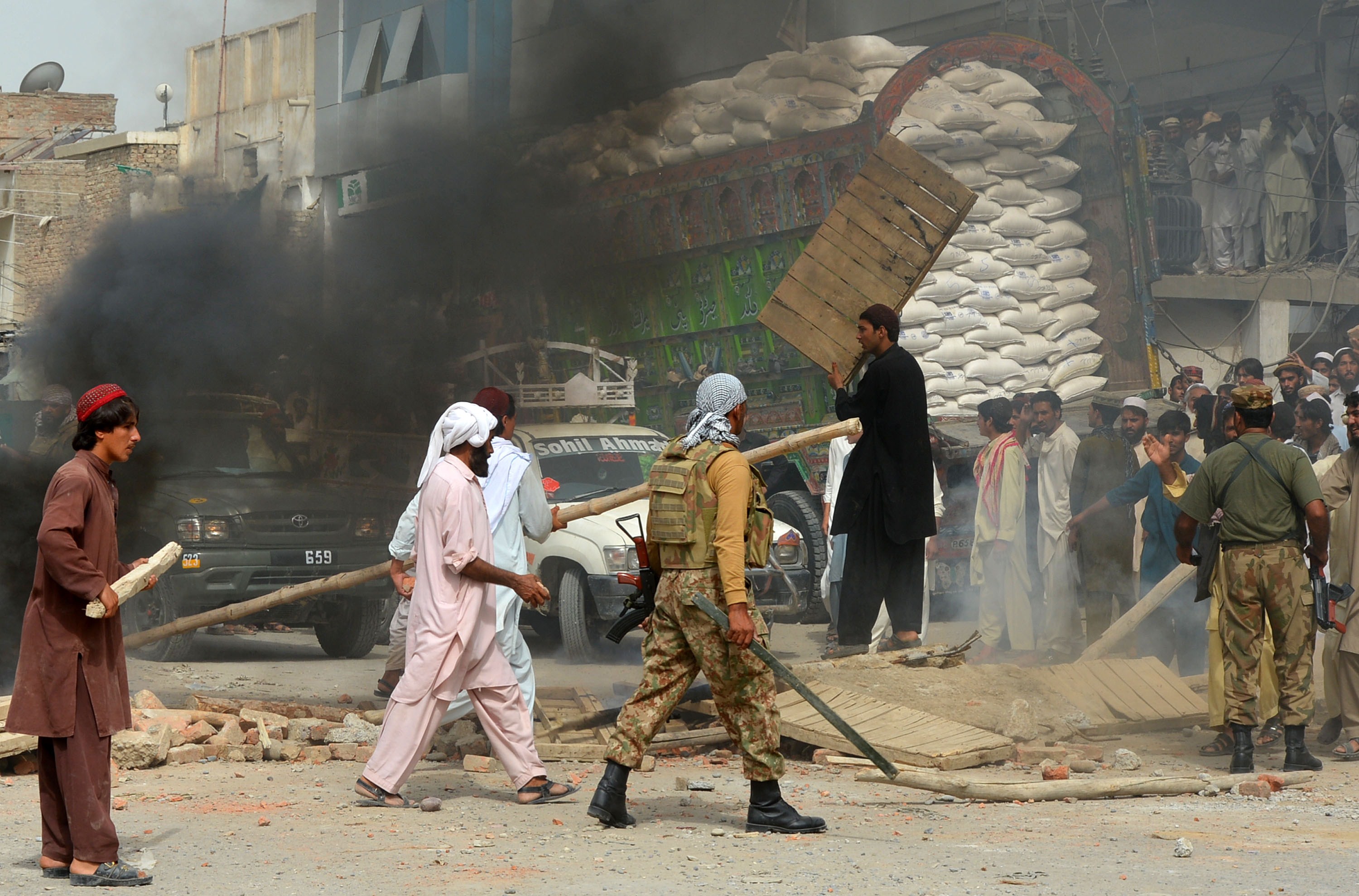
Although Operation Zarb-e Azb and other actions against terrorists from Khyber to Karachi have delivered much, their complete success and total elimination of terrorism remain a dream, which require clarity in our internal and external policies. The country’s policies in this regard, however, remain shrouded in confusion. Contradictory statements by Pakistani officials over the US drone attack and the killing of Afghan Taliban leader Mullah Mansoor indicated chaos within the policymaking circles.
The handing over of the Angoor Adda border crossing to Afghanistan and then the controversy over this action was another manifestation of this institutional muddle.
The government states that Islamabad wants friendly ties with all neighbours, including India, but the poor state of relations with that country as well as with Iran, Afghanistan and Bangladesh is a reflection of our contradictions. Pakistan has so far failed to effectively deal with the India factor in diplomatic terms — Pak-Afghan ties are marred by the India factor as are our ties with Bangladesh. With the India factor barring Pakistan from establishing stronger friendly relations with its neighbours and intelligent diplomacy being absent in tackling the situation, our interests in the region have been damaged. This has led to mistrust in our relations with regional countries as well as with the US. Gaps among regional countries has given space to terrorism to flourish.
We need to understand that an effective foreign policy is not just a set of wishes; it needs to be fully thought out and implemented through a clear course of action. The role that effective diplomacy can play in modern geopolitics cannot be understated. In contrast, Pakistan lacks diplomatic effectiveness in important areas, such as the issue of the Coalition Support Fund, and the controversy over the F-16s with the US.
Our domestic policies are also in disarray. A lack of interest and delay over Fata reforms, the poor implementation of the National Action Plan and the delays in rehabilitation of IDPs have been debated in the media for long. Several months back, the situation prompted the ISPR to issue a statement urging that increased attention be paid towards protecting the gains of Operation Zarb-e-Azb.
At the same time, we see unnecessary delays in making Nacta a functional institution. This situation provides evidence of the lack of focus in implementing our internal policies effectively so that serious national crises can be tackled. We still haven’t seen any concrete steps being taken towards addressing corruption and instituting good governance, which are important if we are to tackle the root causes of terrorism.
Pakistan cannot afford such confusion while facing complex challenges. Al Qaeda, TTP and their numerous factions, foreign militants, as well as groups with sectarian motives, still pose a grave danger to our security.
Despite all these complexities, the armed forces have been able to control the violence in Fata, Khyber-Pakhtunkhwa and Sindh.
Since March, a decline in incidents of terrorism was noted in Balochistan although fatalities have increased a little bit. Similarly, while the March suicide attack in Lahore caused an upsurge in fatalities in Punjab, the number of terror and violence affected districts reduced from 24 to 19 in the province.
Since June 2014, when Operation Zarb-e-Azb was launched, a steady decline in terrorism and fatalities due to violence has been observed. Observers maintain that incidents of terrorism have shrunk by 65 per cent in the last two years. This year, fatalities due to violence dropped by 36.8 per cent as compared to the first quarter of the last year. Suicide attacks do not occur as a matter of routine anymore, militants do not occupy any territory, and though we still witness isolated incidents of terrorism, the situation is certainly not as bad as before.
In order to preserve this momentum, a revamp of our policies is essential. Approval of policies by both houses of parliament, backed by input from relevant ministries and institutions, is crucial. Every policy that has popular backing will succeed. A nation is the aggregate of its citizens, and interests of the citizens are termed as the national interest. Policies need to be drafted keeping in mind the interest of the ordinary citizen — in the sense that the security of life, property, economic well-being and social protection remain the foremost interests. - Express Tribune